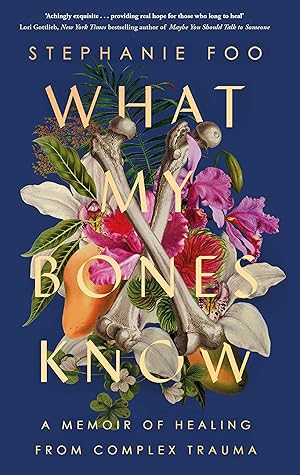More on this book
Community
Kindle Notes & Highlights
My trauma is literally pumping through my blood, driving every decision in my brain.
It didn’t matter if my parents were proud of me. I was proud of me, and that was the most important thing. Because I had done this.
But when I made a mistake, the dread crept into my field of vision and I couldn’t see anything except my mistake for an hour, maybe even a day.
I picked and picked at my memories, trying to figure out how, despite my best efforts, the horrible, rotten core at the center of myself managed to get past my defenses and worm its way out. I questioned every word I uttered, every movement I made. How was I supposed to be?
that C-PTSD patients spend their lives in “relentless search for a savior.”
Every time I met someone new who seemed wise and stable and kind, I wondered if they might be the answer to things, if they might be the new best friend who’d finally crack the code, the one who would make me feel loved. I thought this was a weird but very personal trait of mine. And this whole time it had been a medical symptom.
But her cheerful, exclamation-marked texts showed me, at the very least, that survival wasn’t impossible.
“The important thing was learning how to take good care of myself. To treat myself kindly,”
The books taught me that when we live through traumatic experiences, our brains take in the things around us that are causing the greatest threat, and they encode these things deep into our subconscious as sources of danger.
No, having triggers doesn’t make you a fragile little snowflake. It makes you human.
And here’s what makes complex PTSD uniquely miserable in the world of trauma diagnoses: It occurs when someone is exposed to a traumatic event over and over and over again—hundreds, even thousands of times—over the course of years. When you are traumatized that many times, the number of conscious and subconscious triggers bloats, becomes infinite and inexplicable. If you are beaten for hundreds of mistakes, then every mistake becomes dangerous. If dozens of people let you down, all people become untrustworthy. The world itself becomes a threat.
And people with C-PTSD are drama queen self-saboteurs who are impossible to love.
how she didn’t have to sit there and agonize over how to be decent because she was raised with love.
No matter what I do, no matter where I try to find joy, I instead find my trauma. And it whispers to me: “You will always be this way. It’s never going to change. I will follow you. I will make you miserable forever. And then I will kill you.” The literature says this is normal for traumatized people. Experts say it’s all part of the three P’s: We think our sadness is personal, pervasive, and permanent. Personal, in that we have caused all the problems we face. Pervasive, in that our entire life is defined by our failings. And permanent, in that the sadness will last forever.
That’s why lying there, feeling my arms and legs and chest exist in the world, felt so relaxing. Because it also completely shut up the voice that constantly edits and punishes me.
As Melody Beattie said, “Gratitude turns what we have into enough.”
And memories do surface, but none of them are surprising. They’re the same old smooth stones that I’ve been rubbing in my pocket for years.
It made perfect sense to me later in life when I discovered that the Chinese word for endurance is simply the word knife on top of the word heart. You walk around with a knife in your heart. You do it with stoicism. This is the apex of being.
Deciding to stop speaking to him, she told me, felt like deciding to stop touching a hot stove. Every time she got near him, she was burnt—and so at a certain point, she had to protect her skin.
It didn’t make people happy to have to do it. It was just necessary.
Somebody wants to stay.
We are more vulnerable to developing PTSD or depression if we experience trauma during a certain point in our cycles.
“So the diagnosis made you make sense of why you act the way you do, but it also doomed you in that there’s not much that can be done about it.”
He said I should approach difficult conversations with an attitude of “What is hurting you?” instead of “Have I hurt you?”
I was taught that punishment and shame were the logical and necessary reactions to screwing up. The benefit of punishment was that it would keep my wild and terrible natural tendencies in line. It would shame me into being better.
Being healed is about feeling the appropriate emotions at the appropriate times and still being able to come back to yourself. That’s just life.”
“Pain is about feeling real, appropriate, and valid hurt when something bad happens. Suffering is when you add extra dollops to that pain. You’re feeling bad about feeling bad.”


